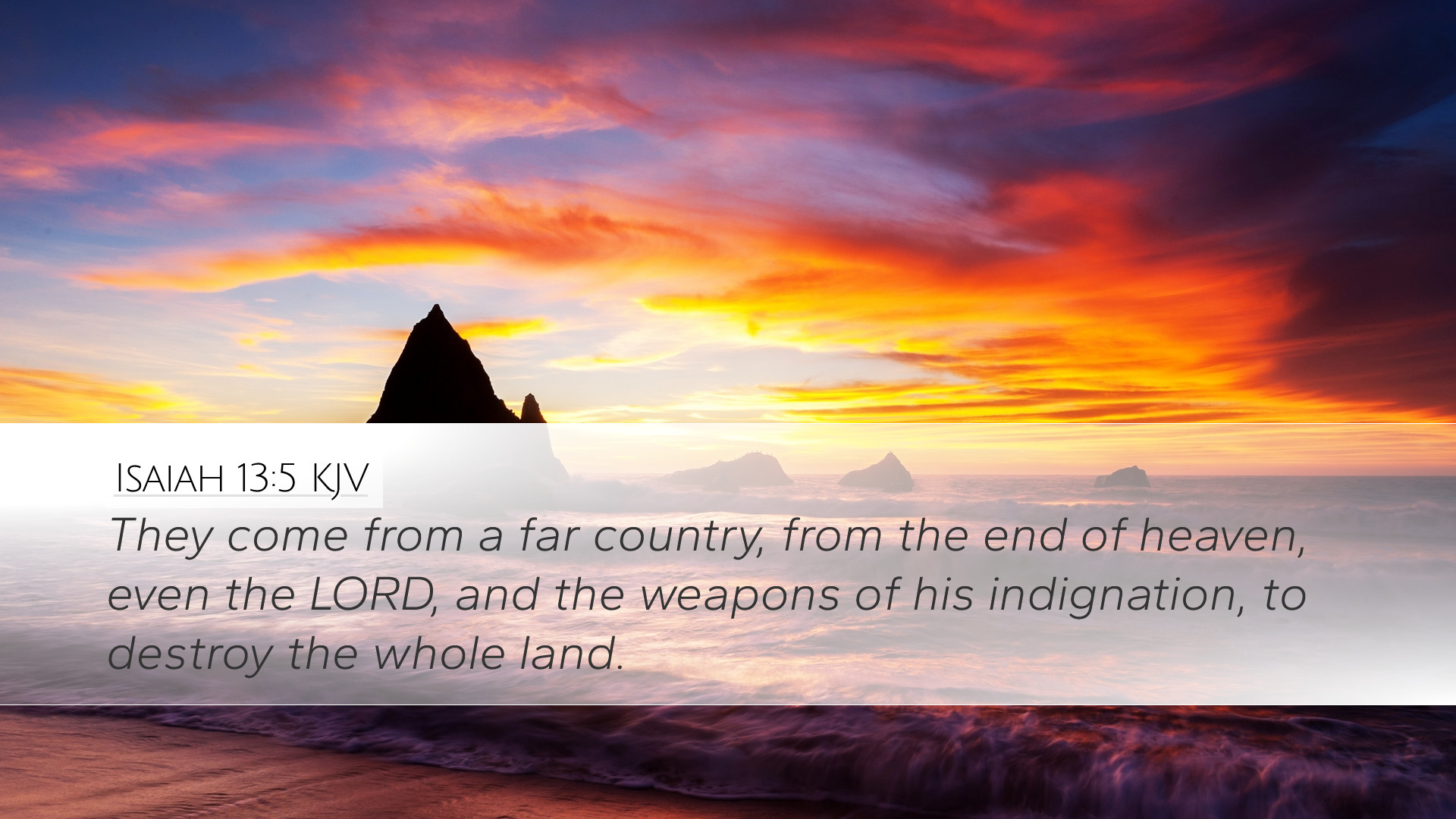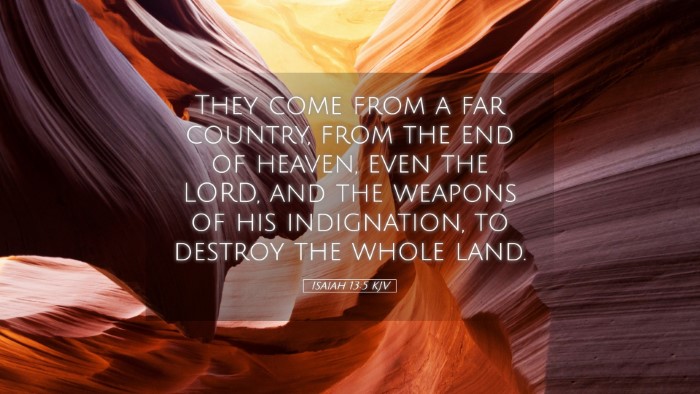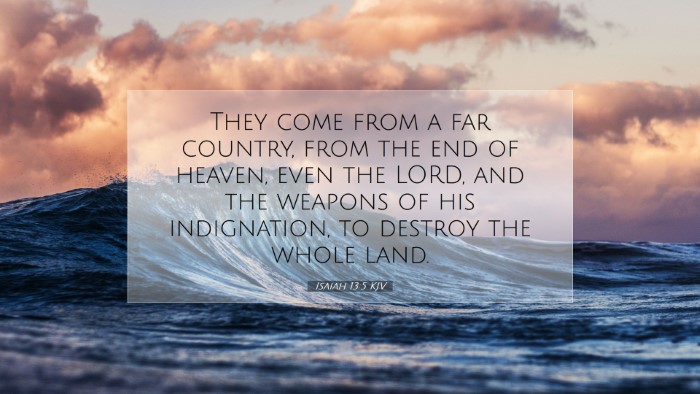Commentary on Isaiah 13:5
Isaiah 13:5: "They come from a far country, from the end of heaven, even the LORD, and the weapons of his indignation, to destroy the whole land."
Contextual Overview
Isaiah 13 is a prophetic declaration concerning the judgement against Babylon. This chapter serves as a crucial segment in Isaiah's overarching message, where God's sovereignty and righteous judgment are vividly portrayed.
Insights from Matthew Henry
Divine Judgment: Matthew Henry emphasizes the significance of God as both the source of justice and the executor of judgment. He notes that the verse identifies the invaders as coming from "a far country," pointing to divine orchestration. God utilizes nations as instruments of His wrath against those who oppose Him.
God's Indignation: Henry explicitly mentions that the phrase "the weapons of his indignation" indicates that the Lord's judgment is precise and effective. It is not merely an abstract concept but a tangible reality that manifests through military might—a clear representation of God’s anger against sin.
Insights from Albert Barnes
Context of Prophecy: Albert Barnes suggests that this prophecy is a forewarning about the destruction of Babylon, illustrating God’s control over nations and their fates. He underlines that both the destroyers and the destroyed are within God's dominion.
The Far Country: Barnes elaborates on the phrase "from a far country," indicating that God's judgment can be executed by means that are distant and unexpected, showcasing His capacity to use diverse means for His purposes.
Symbolic Meaning: Additionally, Barnes interprets the "weapons of his indignation" symbolically, representing the forces of nature as instruments of destruction, as well as foreign armies. This underscores the idea that whatever causes turmoil in the created order is ultimately under God's sovereign rule and serves His divine plan.
Insights from Adam Clarke
Universality of Judgment: Adam Clarke asserts that the judgment described here is universal, highlighting the comprehensive nature of God's wrath against sin. Clarke argues that God's operational sovereignty extends beyond Israel to nations like Babylon, reinforcing the idea that no one is beyond accountability.
The End of Heaven: Clarke explicates the term "end of heaven" as a metaphor for extreme distances, signifying that God’s forces can come from the most unexpected places, echoing the theological principle that God's reach is infinite.
The Whole Land: He analyzes the phrase "to destroy the whole land," suggesting that this reflects not only physical destruction but also spiritual desolation. It serves as a reminder to people of faith that God does not take sin lightly, and the consequences are far-reaching.
Theological Implications
- Sovereignty of God: The verse encapsulates the profound truth of God's sovereignty over nations and history.
- Divine Justice: It reinforces the attribute of God as just and righteous, ensuring that evil will not go unpunished.
- Instrumental Means of Judgment: Recognizing that God can use multiple means—natural disasters, foreign armies—emphasizes the multifaceted nature of His judgment.
- Global Perspective of God's Plan: The outreach of God's judgment as a call to nations, including Israel, reminds readers of the global scope of divine authority and the interconnectedness of humanity before the Creator.
Practical Applications
For pastors, students, and scholars, Isaiah 13:5 offers unique insights into the nature of divine judgment and the moral accountability of nations. It prompts reflection on the following:
- Contemporary Relevance: How do the themes of judgment and accountability resonate in today's sociopolitical landscape?
- Preaching and Teaching: How can the principles derived from this verse guide sermons on justice, mercy, and God's sovereignty?
- Personal Reflection: In what ways should believers consider their own alignment with God's will and the responsibility that entails?
Conclusion
Isaiah 13:5 serves as a powerful reminder that God is both the initiator and the ultimate judge of human affairs. The insights garnered from public domain commentaries present a multifaceted view of God’s character and the implications of His sovereign rule in the world. Understanding the broader context can deepen one's appreciation for God's righteousness, instilling both reverence and accountability in the hearts of believers.


